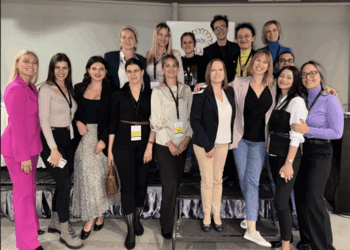Curiosity is often hailed as the driving force behind scientific discoveries, but in the intricate world of cancer research, it’s more than just a spark—it’s the engine that propels transformative breakthroughs. This year, as the EACR emphasises the theme “Keeping Research Curious,” it’s the perfect moment to highlight how curiosity is not just a trait but a crucial component in advancing our battle against cancer.
Curiosity-driven basic research profoundly impacts cancer treatment, as exemplified by the study of the KRAS gene. Researchers were initially intrigued by KRAS’s role in cell signaling and its frequent mutations in cancers such as lung and pancreatic cancer. This foundational curiosity uncovered how KRAS mutations drive tumour growth, leading to the development of targeted therapies like KRAS inhibitors. These treatments specifically target cancer cells with these mutations, showcasing how exploring fundamental genetic mechanisms can lead to innovative therapies that directly benefit patients.
“Curiosity is what drives us forward, even when progress seems slow or obstacles arise”
My scientific curiosity began in childhood. I was fascinated by grape-based shampoo ads and decided to crush grapes into my shampoo, creating a mess of seeds and pieces in my hair. This exasperated my parents, who couldn’t understand my fascination. This early spark of curiosity has evolved into a relentless pursuit of answers throughout my PhD journey. I’ve witnessed firsthand how the freedom to explore is directly tied to the potential for groundbreaking discoveries. Curiosity is the bedrock of all great discoveries. When we pose profound questions and embark on the journey to find answers, we often uncover truths previously unknown. This is where curiosity truly shines—it opens new worlds of possibilities, guiding us towards innovations that might otherwise remain hidden.
My own journey in scientific curiosity has led me through unexpected experiences, including working in the isolated town of Blida in Algeria during the COVID-19 pandemic. Blida was the epicenter of the outbreak in Algeria, where the epidemic first had a significant impact and from which it spread throughout the country. During this period, I was conducting immunohistochemical analyses in the anatomical pathology laboratory of the local hospital. Despite the challenges of being nine months pregnant and the encouragement from my family and friends to stay home, I continued my work and experiments until the very end. Even after a cesarean section, I managed to express milk between assays, which brought a touch of humor to my colleagues. These experiences, though arduous, underscored the critical role of perseverance and curiosity in overcoming obstacles.

One illuminating moment in my research came after years of trials and sacrifices. Recently, my team and I achieved a significant breakthrough in developing a therapy for oral cancer in a mouse model. This progress, which I hope will be published soon, was not immediate; it was the result of relentless curiosity and perseverance. Despite numerous challenges and setbacks, I never stopped questioning and exploring. This journey resonates with Albert Einstein’s belief that curiosity has its own reason for existence and embodies Carl Sagan’s idea that somewhere, something incredible is waiting to be known.
Maintaining curiosity amidst the pressures of a research career can indeed be challenging. Funding constraints, publication demands, and routine tasks can sometimes stifle the spark of exploration. However, nurturing curiosity is essential. It’s what drives us forward, even when progress seems slow or obstacles arise. Embracing curiosity means remaining open to new ideas and approaches, no matter how unconventional they may seem.
Keeping research curious is not just a motto; it’s an imperative for advancing cancer science. By persistently asking fundamental questions and exploring unexpected avenues, we move closer to breakthroughs that will enhance patient care and outcomes. Celebrating and supporting scientific curiosity is crucial for a future where cancer research continues to evolve and thrive, unlocking innovations we have yet to imagine.
 About the author:
About the author:
I’m Mounia Benbelkacem, a PhD student in Biotechnology and Molecular Pathologies at the University of Sciences and Technology Houari Boumediene (USTHB) in Algiers, Algeria. My research focuses on experimental drug design for oral cancer, particularly tongue cancer, which presents significant challenges due to its high morbidity and mortality rates. I explore areas such as pharmacological modulation, drug therapy, immuno-metabolism, and inflammation. I have been honored with travel grants to attend the EACR Annual Congress in Rotterdam 2024 and the Global Adolescent and Young Adult Cancer Congress (GAYACC) in Long Beach, California, USA, in 2023. Outside the lab, I enjoy spending time with my three-year-old son, engaging in sports, reading, traveling, and cooking.



 About the author:
About the author:




